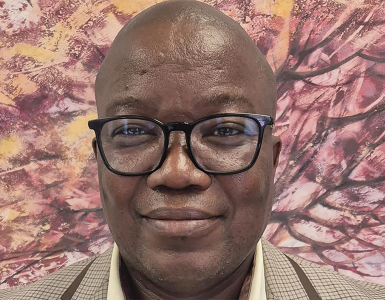ASSESSMENT: Three pillars pivotal for the sustainability of the business in the long term…
By Nhlanhla Mbatha
When a business applies for funding from the KwaZulu-Natal (KZN) Growth Fund, the application must do more than demonstrate profitability or financial stability. It must also reflect a commitment to sustainability, social responsibility and ethical governance.
These three pillars – environmental, social and governance (ESG) – are fast becoming a cornerstone of responsible investment across the globe and the KZN Growth Fund is no exception.
“We don’t just fund businesses; we invest in long-term growth that benefits communities and the environment,” says Tejal Singh, ESG Analyst at the KZN Growth Fund. “That’s why ESG is a non-negotiable part of our funding criteria.”
ESG stands for Environmental, Social and Governance – the three pillars used to assess the sustainability and societal impact of a business. Environmental criteria consider how a company performs as a steward of nature. Social criteria examine how it manages relationships with employees, suppliers, customers and the communities where it operates. Governance deals with a company’s leadership, audits, internal controls and shareholder rights. For the KZN Growth Fund, ESG is integrated directly into its decision-making process when evaluating funding applications.
“In terms of the environment, we consider aspects like whether the company has any recycling policies, whether it uses solar energy in its operations and if it’s taken steps to conserve energy,” Singh explains.
On the social side, the Fund looks for evidence of community engagement and responsible citizenship. “We check whether the company has CSI (Corporate Social Investment) or CRS (Corporate Responsibility and Sustainability) policies in place,” she adds.
And for governance, the standards are equally rigorous. “We assess the company’s governance structures to see if they align with best practices – this includes everything from transparency and accountability to the composition of their boards.”
Singh, who joined the Fund a year ago and holds a background in environmental science, understands that ESG can be a new and unfamiliar concept to many South African businesses.
“Many of our clients – our investees, as we call them – do not fully understand ESG or how it connects to their operations,” she admits. “But some aspects are changing. Over the past year, I’ve seen a real shift. More and more companies are embracing ESG, not just as a requirement for funding but as a value-add to their brand and operations.”
“For us, ESG is not just about compliance,” Singh emphasizes. “It’s about impact. We want our investments to make a difference – to our economy, to our people and to our environment.”
While ESG reporting is still evolving across the African continent, Singh believes that local companies are steadily catching up to global standards.
“Some of our investees follow the United Nations’ Sustainable Development Goals (SDGs), while others adhere to the King Codes of Corporate Governance,” she explains.
Singh and her team provide practical support to these businesses, helping them take their first steps into ESG.
“We advise them to start small,” she says. “Keep records of water and electricity usage. Monitor how waste is disposed of. From there, develop targets, track implementation and evaluate progress.” It’s a long-term process, but one that yields real benefits – not just for the companies but for the broader communities they serve.
No two days are alike for Singh, whose job is as dynamic as the field she represents. One day she might be visiting a rural business site, assessing a company’s environmental footprint. Next, she’s training colleagues, delivering presentations or attending sector events.
“I enjoy the variety,” Singh says with a smile. “It keeps me engaged and grounded in the real-world impact of our work.” Her commitment reflects the ethos of the KwaZulu-Natal Growth Fund: to drive economic growth that is not just profitable but also sustainable and inclusive.
“ESG is more than a trend – it’s the future of investment,” Singh concludes. “And we’re here to make sure that future is bright, fair and resilient.”































